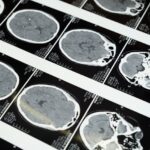- Home
- Addiction Guides
- Why Is Heroin So Addictive?
Why Is Heroin So Addictive?
Heroin is a very addictive substance that can destroy a person’s life in a very short space of time.
In the UK, drug-related deaths, including those relating to heroin, have dramatically risen since 2012. [1]
Most people become addicted to heroin by abusing prescription opioids.
We urge you to reach out to our team if you are struggling with heroin abuse or addiction.
At Rehab Recovery, we can help source local and effective treatment, getting you back on your feet in no time.
Heroin addiction doesn’t have to rule your life.
Please call our 24-Hour Helpline: 0800 088 66 86.
What is heroin?

Heroin is an opioid substance derived from morphine, a natural substance found within the seeds of poppy plants.
These plants are usually found in Southeast Asia, Southwest Asia, Colombia, and Mexico.
Heroin typically appears as a white powder cut with sugar, starch, and other dangerous powders or a black tar substance.
Most people inject heroin intravenously, which carries many health risks, whilst others become addicted by smoking or sniffing the drug.
Some people combine heroin and crack cocaine to create a very strong high.
This is known as speedballing and can be fatal, causing overdose and immediate death.
Heroin is addictive because it binds to the opioid receptors in the brain. These receptors are responsible for feelings of pain and pleasure.
The brain creates opioid chemicals as a natural response to pain; however, this isn’t enough for some people.
For this reason, opioid painkillers are prescribed only for acute pain or for end-of-life care. These painkillers contain synthetic opioid chemicals and trigger a release of dopamine and other feel-good neurotransmitters.
Although heroin is no longer prescribed as a painkiller drug, it still acts as one in the brain causing feelings of pleasure and euphoria.
As the brain becomes dependent on synthetic opioids, it slows down in the production of its own.
This means that if a person addicted to heroin were to stop taking the substance, they would begin to feel immediate negative effects.
If an individual keeps abusing heroin, the opioid receptors in the brain will become damaged, making it incredibly difficult for the brain to produce dopamine.
Low dopamine levels can lead to mental illnesses such as depression, psychosis, and schizophrenia.
There are also lots of physical changes that take place when an individual becomes addicted to heroin.
Please call our 24-Hour Helpline: 0800 088 66 86.
What are the signs of heroin addiction?

Whilst we’ve touched upon what happens in the brain when an individual is addicted to heroin, you may be interested to know what physical changes take place and how you can spot the signs of addiction.
Below we have compiled a list of the most common signs and symptoms of heroin addiction:
- Change in pupil size
- Inability to stay awake
- Itching at areas of the skin where needles may have been used, i.e., arms, feet, legs
- Skin infections
- Abscesses
- Rash
- Nausea and vomiting
- Rapid weight loss
- Memory loss
- Disorientation
- Mood swings
We understand that opening up about addiction can be incredibly challenging.
It is also very hard to approach a loved one about their substance abuse, especially if you have tried to offer a helping hand in the past.
At Rehab Recovery, we want you to know that you are not alone. Acknowledging your addiction is the first and perhaps most challenging step.
However, once you have achieved this and are ready to begin treatment, you will be on the road to recovery in no time.
We also offer expert support and advice to families and friends. For more information, reach out to our team today either on the telephone number provided or through the LiveChat tool located across our site.
Please call our 24-Hour Helpline: 0800 088 66 86.
What are heroin withdrawal symptoms?

Withdrawal symptoms occur when an individual stops using a substance they have a high dependency on. The duration and severity of withdrawal symptoms depend on many factors, such as the drug you are dependent on and your DNA.
Withdrawal is the first step in overcoming addiction, and it can be very unpleasant. For this reason, we advise clients to detox in a rehabilitation facility. Heroin withdrawals can be dangerous if not correctly monitored. [2]
Abruptly stopping your consumption can put your physical and mental health in immediate danger. The most common types of withdrawal symptoms experienced with heroin dependency include:
- Depression
- Muscle spasms
- Anxiety
- Intense cravings
- Shaking
- Sweating
- Increased heart rate
- Agitation
- Vomiting
Whilst this sounds very unpleasant, withdrawing in a specialised clinic can give you access to medications and therapy. Both of these will help ease the withdrawal symptoms you are experiencing and increase your chances of sobriety.
Attempting to manage your withdrawals at home is not advised, especially for heroin addiction. This is because heroin withdrawals can lead to death if not medically supervised. You are also more likely to relapse at home and consume dangerous levels of heroin in an attempt to undo the negative feelings you are experiencing.
Whilst detoxes can be difficult; they are only temporary. However, completing this part of the rehabilitation programme can help you progress and continue your recovery efforts.
Please call our 24-Hour Helpline: 0800 088 66 86.
What are my treatment options for heroin addiction?

For most addictions to drugs and alcohol, residential rehabilitation will be advised. This is because it allows you to recover in a safe and calm environment away from the triggers of home life. [3]
For heroin addiction, a combination of behavioural and pharmacological treatment will be recommended.
Residential rehab includes your detox programme and therapy to help you better cope with your addiction and learn healthy, new coping mechanisms.
Healing at a residential rehab centre will dramatically increase your chances of staying sober.
This form of treatment is most definitely advised for a heroin addiction due to the intensity of the dependence. Heroin addictions require careful treatment and medications and cannot be immediately stopped.
By partaking in an inpatient form of treatment, you will benefit from around-the-clock support from an experienced team of staff who are invested in your recovery journey.
Whilst outpatient treatment is the other form of treatment recommended for those who want to overcome addiction, it takes place in the home environment, which can be very risky for those with heroin addiction.
Please call our 24-Hour Helpline:0800 088 66 86.
Reach out to Rehab Recovery

We can help you get back on track and in control of your life. Through the highest quality treatment providers in the UK and abroad, we help our clients source the most suitable and effective programmes.
Addiction doesn’t have to rule your life.
Call us today to find out more on 0800 088 66 86.
References
[1] Non-fatal overdose among people who inject drugs in England: 2018 report
[2] Opioid Withdrawal
https://www.ncbi.nlm.nih.gov/books/NBK526012/
[3] What are the treatments for heroin use disorder?
https://nida.nih.gov/publications/research-reports/heroin/what-are-treatments-heroin-use-disorder




